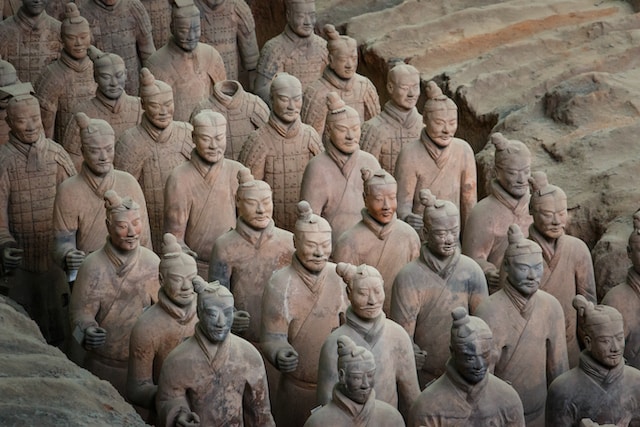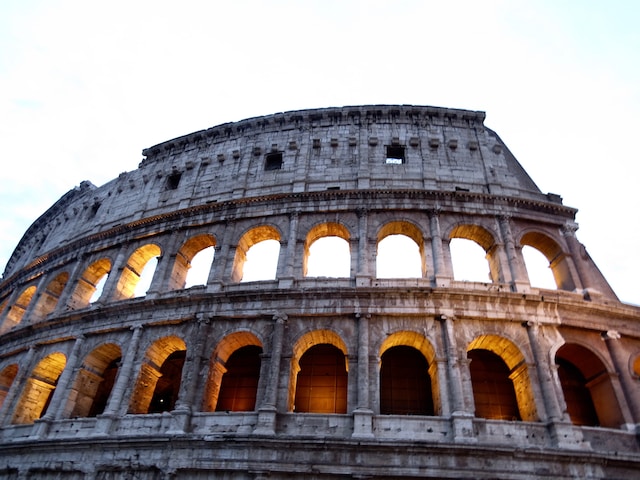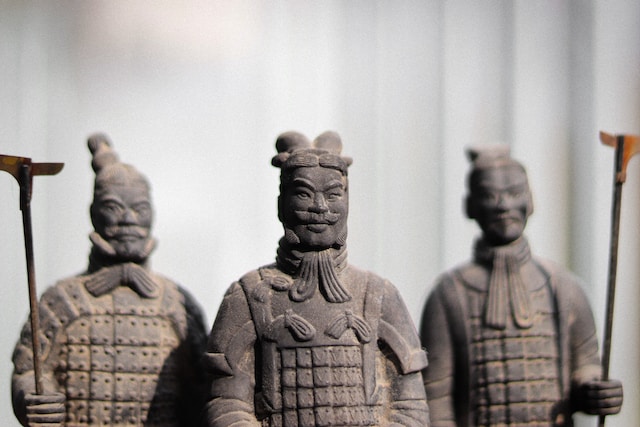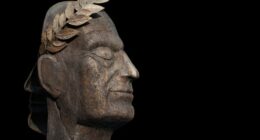A dynasty is a succession of rulers from the same family or line that governs a single nation or state. An empire is a large and powerful state or nation that often includes multiple territories, colonies, or vassal states and is usually centralized around a single ruler.
What is a dynasty?
(Photo by Rasmus Gundorff Sæderup on Unsplash )

The word “dynasty” comes from the Greek word for “power” or “authority.” A dynasty is a succession of rulers from the same family, typically over many generations. In most cases, the ruling family controls the government and the military, and its members intermarry with other aristocratic families to maintain their power.
Dynasties have existed in many cultures throughout history, including ancient Egypt, China, and Japan. The term can also be used to refer to a powerful family or group that exercises control over a particular field or enterprise, such as the Kennedy dynasty in American politics or the Rothschild dynasty in finance.
What is an empire?
(Photo by Ilona Frey on Unsplash )

An empire is a large and powerful political entity, typically consisting of multiple countries or regions, ruled by a single leader or group of leaders. An empire can be formed through conquest, alliances, colonization, or other means.
The term “empire” has been used throughout history to describe many different kinds of political entities, from small city-states to large multinational empires. The word itself is derived from the Latin word imperium, which means “power” or “authority.”
Empires vary greatly in their size, structure, and nature. Some empires are relatively decentralized, with a large degree of autonomy granted to their constituent parts. Others are highly centralized, with the central government exerting tight control over the entire territory.
There are also significant differences in the way that empires are governed. Most empires have some form of monarchy, but there have also been many empires that have been governed by elected officials or dictators.
The term “empire” is often used in a negative sense to describe an overly powerful and oppressive political entity. However, not all empires are bad; many have been credited with bringing peace and stability to their regions, and some have even been considered benevolent.
Dynasty Vs. Empire – Key differences
Dynasty and empire are both terms used to describe long-lasting and influential political systems, but there are some key differences between the two.
Definition: A dynasty is a series of rulers from the same family or line, while an empire is a large and powerful state or nation that is usually made up of several territories or nations.
Power structure: In a dynasty, power is passed down through the family line, with a new ruler taking over when the previous one dies or abdicates. In an empire, power is usually centralized in a single ruler, such as an emperor or king, who rules over a large and diverse group of people.
Scope of control: A dynasty usually governs a single nation or state, while an empire often includes multiple territories, colonies, or vassal states. Empires tend to be more expansive and diverse in terms of geography and culture.
Stability: A dynasty is typically more stable than an empire because power is passed down within a family line, which can help to maintain continuity and stability. In contrast, empires are often subject to power struggles and instability due to their large size and diverse population.
Duration: Dynasties tend to last for several generations or centuries, while empires can be relatively short-lived or last for centuries, depending on the circumstances of their formation and the stability of their rulers.
A dynasty is a type of ruling family that maintains power over a nation or state, while an empire is a large and powerful nation or state that rules over multiple territories or nations. Dynasties tend to be more stable and long-lasting, while empires are often more expansive and diverse, but also more prone to instability and power struggles.
Examples of dynasties and empires
| Dynasties | Empires |
|---|---|
| Han Dynasty (206 BCE - 220 CE) in China | Roman Empire (27 BCE - 476 CE) in Europe, Africa, and the Middle East. |
| Gupta Dynasty (320 - 550 CE) in India | Mongol Empire (1206 - 1368 CE) in Asia and Eastern Europe. |
| Abbasid Dynasty (750 - 1258 CE) in the Islamic world | Ottoman Empire (1299 - 1922 CE) in the Middle East, North Africa, and Europe. |
| Tang Dynasty (618 - 907 CE) in China | British Empire (1583 - 1997 CE) in North America, South America, Africa, Asia, Australia, and New Zealand. |
| Mughal Dynasty (1526 - 1857 CE) in India | Spanish Empire (1492 - 1975 CE) in North America, South America, Europe, Africa, and Asia. |
| Qing Dynasty (1644 - 1912 CE) in China | Russian Empire (1721 - 1917 CE) in Europe and Asia. |
| Habsburg Dynasty (1273 - 1918 CE) in Europe | Persian Empire (550 - 330 BCE) in the Middle East and Central Asia. |
| Bourbon Dynasty (1589 - 1792 CE) in France | Mughal Empire (1526 - 1857 CE) in South Asia. |
| Ptolemaic Dynasty (323 - 30 BCE) in Egypt | Inca Empire (1438 - 1533 CE) in South America. |
| House of Windsor (1917 - present) in the United Kingdom. | Aztec Empire (1428 - 1521 CE) in Central America. |
What was the largest empire in history?
The largest empire in history was the British Empire, which spanned an estimated 33 million square kilometers (12.7 million square miles) at its height in the early 20th century. The British Empire included territories in North America, South America, Africa, Asia, Australia, and New Zealand, as well as numerous smaller islands and territories around the world.
The British Empire was formed over several centuries of colonization and expansion, beginning with the establishment of British colonies in North America in the 17th century. It continued to expand throughout the 18th and 19th centuries, with the acquisition of territories in Africa, Asia, and the Pacific. By the early 20th century, the British Empire controlled nearly a quarter of the world’s land and population, making it the largest empire in history.
Despite its size and power, the British Empire was not without its challenges and controversies. The empire’s expansion and control over other nations and peoples often came at a great cost, including the displacement and oppression of indigenous peoples, exploitation of natural resources, and the perpetuation of racial and cultural inequalities. In the 20th century, the growing demands for independence and self-rule in many of the empire’s territories led to the gradual dismantling of the British Empire, with most territories gaining independence by the mid-20th century.
What was the longest dynasty in history?
The longest dynasty in history is considered to be the Zhou Dynasty of China, which ruled for more than 800 years from 1046 BCE to 256 BCE. The Zhou Dynasty is divided into two periods, the Western Zhou (1046 BCE – 771 BCE) and the Eastern Zhou (770 BCE – 256 BCE), with the latter period further divided into two sub-periods, the Spring and Autumn Period (770 BCE – 476 BCE) and the Warring States Period (475 BCE – 221 BCE).
The Zhou Dynasty was established after the overthrow of the Shang Dynasty by King Wu, who then proclaimed himself as the first king of the Zhou Dynasty. The Zhou Dynasty is known for its cultural achievements, including the development of the Chinese writing system, the introduction of the concept of the Mandate of Heaven, and the promotion of Confucianism and Taoism as the dominant philosophical and religious beliefs in China.
Despite its long reign, the Zhou Dynasty experienced many challenges, including internal conflicts and external threats from nomadic tribes in the north. In the later years of the dynasty, power became decentralized and the rulers lost control over much of their territory, leading to the eventual collapse of the dynasty and the emergence of the Qin Dynasty in 221 BCE. However, the legacy of the Zhou Dynasty continued to influence Chinese culture and society for centuries to come, and it remains an important part of China’s rich history and heritage.
Featured Image By – Kevin Jackson on Unsplash








